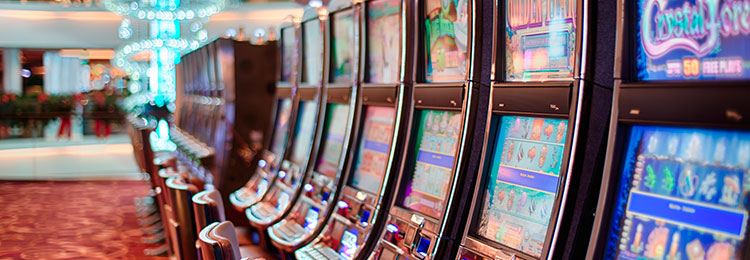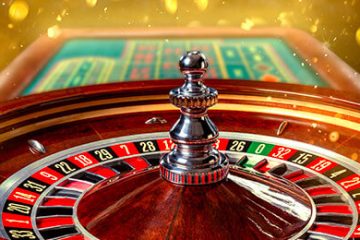Greed in the simplest terms refers to the urge human beings have to get more and more of the things they want and to do this they focus primarily on achieving these desires. This definition implies that greed is nothing more than a profound form of gluttony which further assumes that the very concept is a sin of some sort. Is greed bad? Is it good? Well, it all depends on the definition you choose though in most cases the meanings people assign to it shift significantly based on their current situations. So, in if you are reading this, then do not expect a straight answer as to whether greed is either good or bad. We will leave that up to you to decide.
Greed in Gambling
While the debate rages on about whether gambling is good or bad, let us have a look at how the concept relates to the gambling industry.
Most people think that people with gambling problems are addicted to money or the thrill of winning. Maybe. Or it could just be greed. Even when they say that they are ready to pay for the games they participate in, most gamblers are primarily motivated by the idea of having some kind of freebie or easy money. To be more precise, the truth is, there is definitely no spirit of good will, with which players give their money away in order to just have a good time gambling. Mutual greed is, therefore, part and parcel of gambling just like in duels where the participants agree to give the opportunity to be killed but equally mutually attempt to murder each other.
Many gamblers will question the viability of these claims citing issues such as the excitement and thrill that people seek from gambling. Of course, there is no completely solid foundation to dispute these but from a different perspective, taking the money away from gambling simply makes the games not worth playing. All gambling is done for money or any other form of reward in the end. The point here is; people indulge continuously in gambling activities due to money insatiability which without a doubt points to the bone of contention here – greed.
Are All Gamblers Greedy?
This is a very interesting idea if you ask me. The question should in fact be; Are you a greedy gambler? Hypothetically speaking, about 80 percent of gamblers do not care about the bets; they are only interested in the money. Therefore it is safe to say that not all gamblers are greedy – in this case about 20 percent gamble for the thrill, excitement or just to pass time. Mind you, this does not mean that we are separating the good from the bad as we have not stated that greed, especially in gambling, is good or bad. Nevertheless, it does not really matter whether you are a greedy gambler or not – it is knowing which side you fall on that should concern you.
So, How Do You Know If You Are a Greedy Gambler?
Greed and ego often go hand in hand and gambling is all about your ego. Having a healthy and sensible ego is perhaps the key to satisfactory gambling experiences. However, when a sensible ego is clouded by greed, gamblers begin to increase their staking levels above their usual comfort zones. Winning then becomes harder as the games never seem to end. At this stage, most gamblers refocus their efforts on being the world’s only winner instead of being just one of them – which is nothing but an unmitigated disaster.
Greedy gamblers do not know how to lose, and remember, you MUST lose sometimes otherwise it is not a game of gambling. Greedy gamblers will always lose miserably. You should probably read that again since it is an important point to ponder. Greedy gamblers always lose miserably. Ideally, you have to lose in such a way that the position you are in at the time is not irrecoverable using the same controlled staking plan you have mastered and not succumbing to a long trail of disastrous “catch up” bets that usually quickly spiral out of control.

Do you always lose miserably? Are there always irrational reasons and circumstances that are to “blame” for your losses? Is it always someone else’s fault? If the answers to any of these questions is a “yes” then you are greedy. It gets even worse when you the addiction associated with greed ramps up the situation by influencing feelings of being short changed as well as dissatisfaction with one’s self. Pure greed at its best is when you biggest losses are a direct result of your attempts to win more than you already have.
Managing Gambling and Greed
Being content with the small winnings is by far the best piece of advice as small wins in very many cases negate large losses that may be awaiting you. In gambling, the odds will always be against you, hence the name. However, winning small regularly by applying methodologies that slightly turn the odds in your favor is very profitable in the long run.
Next, set limits! Yes, we know, it is hard to resist the urge to bet beyond your usual comfort zones especially when the prospects of winning are very enticing. Betting with bookmakers, again, ensure that you never run out of money unless they too are greedy. It is a good idea to set a daily limit at the Bookmaker to ensure you don’t do anything you regret.
Also, it is advisable to lower the risk such that if you must lose then you will be losing sensibly. Controlling the results of your wagers helps in planning which would further suggest that raising stakes to chase your losses is not a good idea. The point here being; hold steady at a maximum and comfortable stake.
Lastly, quitting gambling is always a sensible option even if it is just for a while. Greed often drains individuals of their finances but also robs them of their peace of mind and composure thus taking a break from of all of it always does some good as individuals take time to reflect on their mistakes.



0 Comments